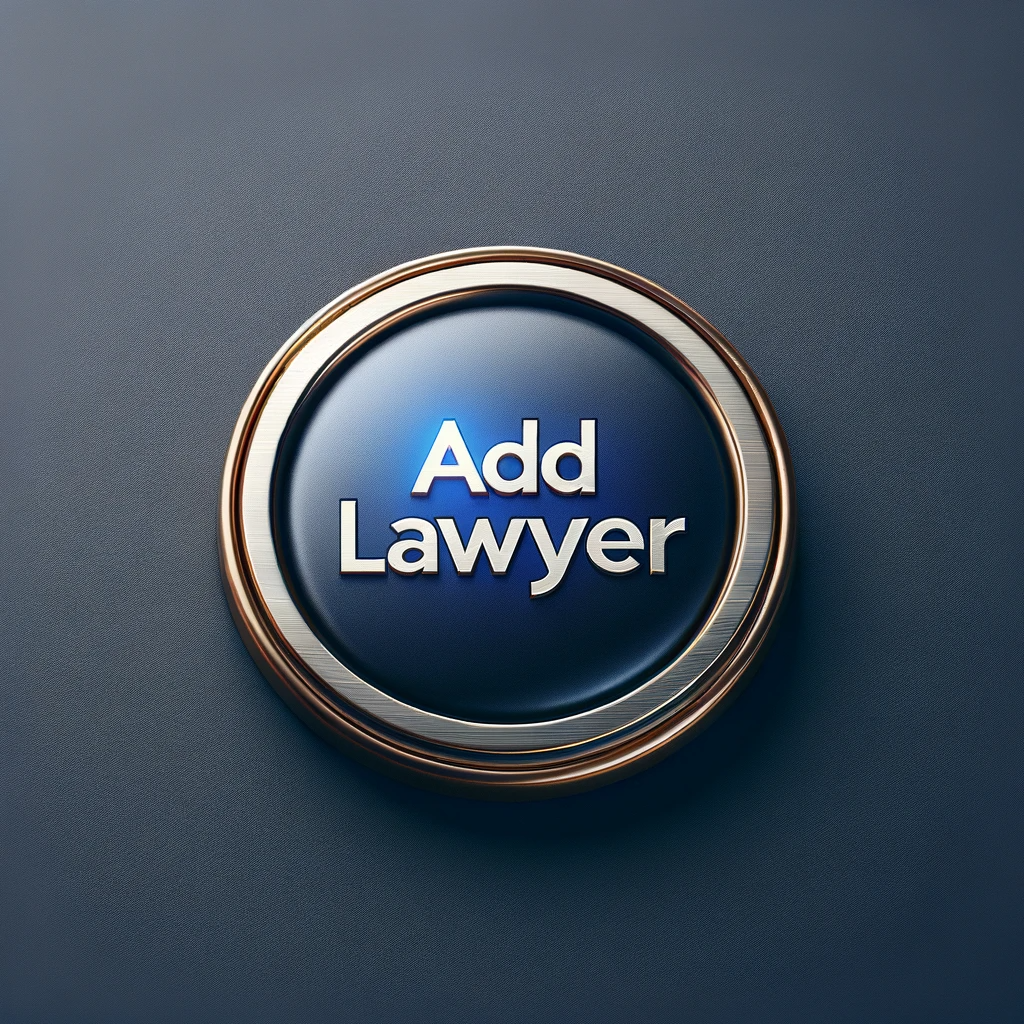106 Lawyers Founds
Filter Your Results
Bankruptcy Lawyers - Best Attorneys Near Me
Bankruptcy is a legal process that allows individuals or businesses to seek relief from their debts when they are unable to repay them. This process can be complex and overwhelming, which is why it is important to hire a bankruptcy lawyer to guide you through the process and ensure that your rights are protected.
What is bankruptcy and when do you need a bankruptcy lawyer?
Understanding bankruptcy and its implications
Bankruptcy is a legal status of a person or business that cannot repay their debts to creditors. It is a court-supervised process that provides individuals or businesses with the opportunity to eliminate or repay their debts under the protection of the bankruptcy court. The implications of bankruptcy can vary depending on the type of bankruptcy filed, but generally, it provides relief from overwhelming debt and allows for a fresh start.
When should you consider hiring a bankruptcy attorney?
It is advisable to consider hiring a bankruptcy attorney when you are struggling with overwhelming debt and are considering filing for bankruptcy. A bankruptcy attorney can help you understand the complexities of the bankruptcy process, evaluate your financial situation, determine the best course of action, and navigate the legal requirements. By hiring a bankruptcy attorney, you can ensure that your rights are protected and that you receive the best possible outcome for your bankruptcy case
Exploring the benefits of working with a bankruptcy lawyer
Working with a bankruptcy lawyer has several benefits. Firstly, a bankruptcy lawyer has extensive knowledge and experience in bankruptcy law and can provide you with expert legal advice based on your specific situation. They can guide you through the entire bankruptcy process, from the initial consultation to the final resolution, ensuring that you comply with all the necessary requirements and deadlines. Additionally, a bankruptcy lawyer can represent your best interests, negotiate with creditors, and help protect your assets during the bankruptcy proceedings.
How to find the best bankruptcy attorney near you?
Factors to consider when searching for a bankruptcy attorney
When searching for a bankruptcy attorney, there are several factors you should consider. Firstly, it is important to find a bankruptcy attorney who specializes in bankruptcy law and has experience handling bankruptcy cases. You should also consider the reputation and track record of the attorney or law firm, as well as their availability and fees. Additionally, it can be helpful to seek recommendations from friends, family, or other professionals who have previously worked with a bankruptcy attorney.
Researching bankruptcy attorneys in your area
One way to find bankruptcy attorneys in your area is through online research. You can use search engines to find listings of bankruptcy attorneys in your city or state. It is important to review their websites, read client testimonials, and check if they have any disciplinary actions or complaints filed against them. This research will help you gather information about the bankruptcy attorneys and narrow down your choices to the ones that best fit your needs.
Using online directories to find bankruptcy lawyers near you
Another useful tool for finding bankruptcy lawyers near you is online directories. There are several reputable online directories that list bankruptcy lawyers based on location and specialty. These directories often provide additional information about the lawyers, such as their areas of expertise, contact information, and client reviews. By using these directories, you can easily find and compare bankruptcy lawyers in your area.
What are the different types of bankruptcy and their differences?
Understanding Chapter 7 bankruptcy
Chapter 7 bankruptcy, also known as "liquidation bankruptcy," is a type of bankruptcy that allows individuals and businesses to discharge most of their unsecured debts. In a Chapter 7 bankruptcy, a trustee is appointed to liquidate the debtor's non-exempt assets and distribute the proceeds to creditors. This type of bankruptcy is typically chosen by individuals with little to no disposable income who are unable to repay their debts.
Exploring Chapter 13 bankruptcy and its advantages
Chapter 13 bankruptcy, also known as "reorganization bankruptcy," is a type of bankruptcy that allows individuals to create a repayment plan to repay all or a portion of their debts over a period of three to five years. Unlike Chapter 7 bankruptcy, Chapter 13 bankruptcy does not involve liquidation of assets. This type of bankruptcy is often chosen by individuals with a regular income who want to keep their assets, such as their home, while repaying their debts.
An overview of Chapter 11 bankruptcy and its complexities
Chapter 11 bankruptcy is a type of bankruptcy that is primarily used by businesses, although individuals can also file for Chapter 11 bankruptcy in certain circumstances. This type of bankruptcy allows businesses to reorganize their debts and continue operations while repaying their creditors. Chapter 11 bankruptcy is more complex and expensive compared to other types of bankruptcy due to the involvement of more stakeholders and the need for a comprehensive reorganization plan.
What to expect during the bankruptcy process?
Consulting with a bankruptcy attorney for a free case evaluation
One of the first steps in the bankruptcy process is to consult with a bankruptcy attorney for a free case evaluation. During this consultation, the attorney will review your financial situation, explain your options, and recommend the best course of action based on your circumstances. This initial consultation is an opportunity for you to ask questions and make an informed decision about moving forward with the bankruptcy process.
Understanding the steps involved in filing for bankruptcy
Filing for bankruptcy involves several steps. Firstly, you will need to gather all necessary financial documentation, such as income statements, tax returns, and a list of your assets and liabilities. Your bankruptcy attorney will then prepare the necessary forms and file them with the bankruptcy court. Once your bankruptcy petition is filed, an automatic stay will be in effect, which will halt collection actions by creditors. You will also be required to attend a meeting with your bankruptcy trustee to discuss your financial situation.
Working with creditors and debt relief options
During the bankruptcy process, your bankruptcy attorney will work with your creditors and represent your interests. They will negotiate with creditors to reach a resolution that is favorable to you. Depending on the type of bankruptcy filed, you may be required to make regular payments to your bankruptcy trustee, who will distribute the funds to your creditors. Your bankruptcy attorney can also explore debt relief options, such as debt consolidation or negotiation, to help you achieve a more manageable financial situation.
How to choose the best bankruptcy lawyer for your case?
Considering the experience and specialization of bankruptcy attorneys
When choosing a bankruptcy lawyer for your case, it is important to consider their experience and specialization in bankruptcy law. Look for attorneys who have handled similar cases and have a track record of success. Additionally, consider their knowledge of local bankruptcy laws and procedures, as these can vary from state to state. By choosing a bankruptcy lawyer with the right experience and specialization, you can increase your chances of a successful outcome for your case.
Scheduling consultations and evaluating the expertise of lawyers
Once you have a list of potential bankruptcy lawyers, it is recommended to schedule consultations with them to discuss your case. During these consultations, evaluate the expertise and professionalism of the lawyers. Ask questions about their experience, success rate, and approach to handling bankruptcy cases. A good bankruptcy lawyer should be able to provide clear and concise answers to your questions and make you feel comfortable and confident in their abilities to handle your case.
Reading client reviews and testimonials to make an informed decision
In addition to consultations, reading client reviews and testimonials can be a valuable source of information when choosing a bankruptcy lawyer. Online platforms like Yelp and legal directories often have client reviews and ratings for lawyers. These reviews can give you insights into the experiences of previous clients and help you make an informed decision about which bankruptcy lawyer is best suited for your case.
How useful was this page?
Click on a star to rate it!
Average rating 5 / 5. Vote count: 141
No votes so far! Be the first to rate this page.


